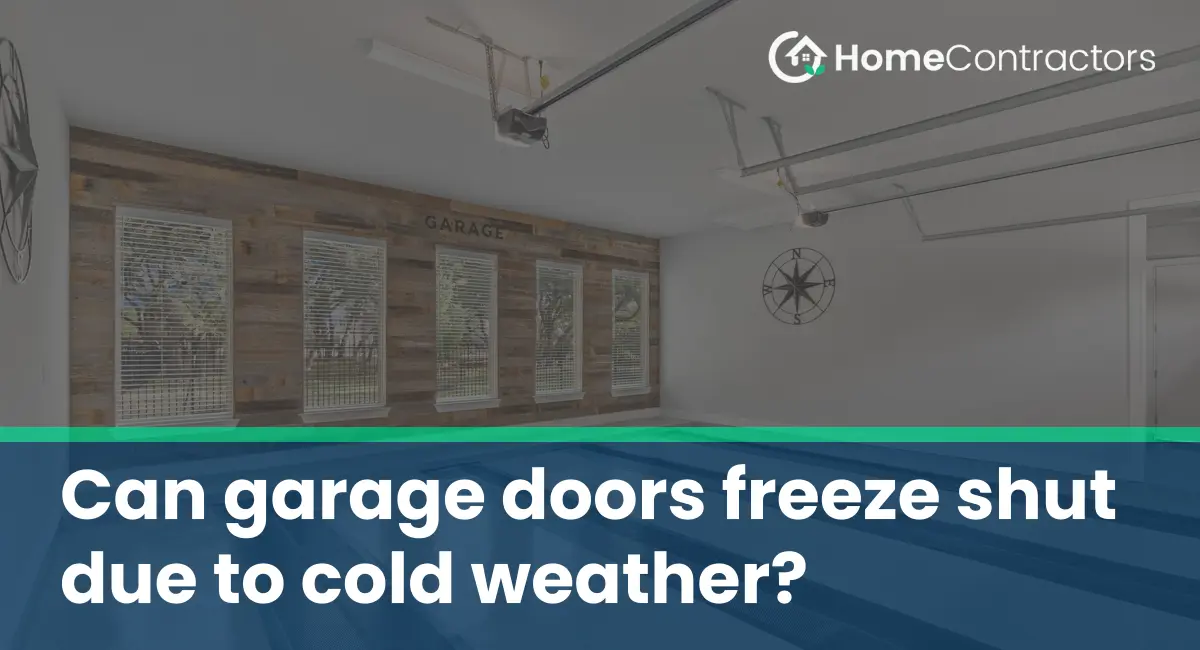Garage doors are an essential part of our homes, providing security and convenience. However, during the winter months, they may encounter a common problem – freezing shut. Cold weather and freezing temperatures can cause various issues with garage doors, from malfunctioning sensors to frozen components. In this article, we will delve deeper into the causes of garage doors freezing shut due to cold weather and provide some tips to prevent this from happening.
Causes of Garage Doors Freezing Shut
1. Water Seepage
One common cause of garage doors freezing shut is water seepage. When snow or ice accumulates around the base of the garage door, it can melt and seep into the cracks or gaps under the door. As the temperature drops, the water can freeze, essentially locking the door in place. This can happen if the garage floor is not sloped properly to direct water away from the door.
2. Moisture Buildup
Moisture buildup inside the garage can also contribute to garage doors freezing shut. If there are any cracks or gaps in the garage, cold air can seep in, causing condensation to form. Over time, this moisture can freeze and cause the door to become stuck.
3. Lubricant Hardening
Another factor that can lead to garage doors freezing shut is the hardening of lubricants. Many garage doors rely on lubrication to operate smoothly. However, when exposed to cold temperatures for an extended period, the lubricant can harden, making it difficult for the door to move. This can result in the door freezing shut and becoming unresponsive to remote or manual operation.
Preventing Garage Doors from Freezing Shut
1. Insulate the Garage
Proper insulation is crucial for preventing garage doors from freezing shut. Insulating the garage can help maintain a consistent temperature and prevent cold air from seeping in. It can also reduce moisture buildup, potentially preventing freezing. Consider insulating the walls, ceiling, and any exposed pipes to create a more controlled environment within the garage.
2. Improve Drainage
Assess and improve the drainage around your garage to prevent water seepage and accumulation. Ensure that the garage floor slopes away from the door, directing water away from the area. Adding weatherstripping or a door sweep on the bottom of the garage door can also help keep water and moisture from seeping under the door.
3. Use a De-Icing Solution
If you notice that your garage door has started to freeze shut, using a de-icing solution can help thaw the frozen components. Apply the solution to the affected areas, such as the bottom seal or any visible ice build-up. Be cautious about using salt-based de-icers, as they can corrode metal components over time.
4. Maintain Your Garage Door
Regular and proper maintenance of your garage door is essential for preventing freezing issues. Ensure that all moving parts, such as the springs, rollers, and hinges, are in good condition and adequately lubricated. It is also vital to keep the tracks clean and free of debris. Regular maintenance can help identify any potential issues before they turn into significant problems.
While garage doors freezing shut due to cold weather can be frustrating, it is possible to prevent this issue with proper maintenance and precautions. By addressing potential causes such as water seepage, moisture buildup, and lubricant hardening, homeowners can ensure their garage doors continue to function optimally even in freezing temperatures. It is essential to take proactive measures such as insulation, improving drainage, using de-icing solutions, and regular maintenance to keep your garage door operating smoothly throughout the winter months.
